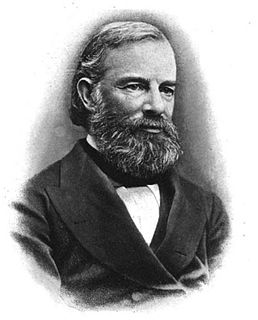A Quote by Ralph Waldo Emerson
Undoubtedly we have no questions to ask which are unanswerable. We must trust the perfection of the creation so far, as to believe that whatever curiosity the order of things has awakened in our minds, the order of things can satisfy. Every man's condition is a solution in hieroglyphic to those inquiries he would put. He acts it as life, before he apprehends it as truth.
Related Quotes
Every man, every woman who has to take up the service of government, must ask themselves two questions: ‘Do I love my people in order to serve them better? Am I humble and do I listen to everybody, to diverse opinions in order to choose the best path.’ If you don’t ask those questions, your governance will not be good.
Every man, every woman who has to take up the service of government, must ask themselves two questions: 'Do I love my people in order to serve them better? Am I humble and do I listen to everybody, to diverse opinions in order to choose the best path?' If you don't ask those questions, your governance will not be good.
Commemoration of Gilbert of Sempringham, Founder of the Gilbertine Order, 1189 Some there are who presume so far on their wits that they think themselves capable of measuring the whole nature of things by their intellect, in that they esteem all things true which they see, and false which they see not. Accordingly, in order that man's mind might be freed from this presumption, and seek the truth humbly, it was necessary that certain things far surpassing his intellect should be proposed to man by God.
Suppose we wonder whether we should trust the deliverances of our basic epistemic competences. If those are indeed our basic competences, then in order properly to satisfy our curiosity we will inevitably rely on one or more of them. So, either we squelch our curiosity or we will have to fall into the circularity or regress to which the skeptic objects.
The universe is no narrow thing and the order within it is not constrained by any latitude in its conception to repeat what exists in one part in any other part. Even in this world more things exist without our knowledge than with it and the order in creation which you see is that which you have put there, like a string in a maze, so that you shall not lose your way. For existence has its own order and that no man’s mind can compass, that mind itself being but a fact among others.
It put me upon reflecting how little repining there would be among mankind at any condition of life, if people would rather compare their condition with those that were worse, in order to be thankful, than be always comparing them with those which are better, to assist their murmurings and complaining.
A wound needs air in order to heal. We must talk about and expose those things which have hurt or harmed us in some way. Our wounds need nurturing care in order to heal. If we are to nurture and heal, we must admit that the wounds exist. We must carefully do what is necessary to help ourselves feel better.
The word; the forth-speaking of a thought, an idea, a truth, is the beginning of every new creation, or pulse of creation. It is the inauguration of every new order of things; it begins every new messianic reign, every coming of a better time. The darkness never comprehends it; but always, to as many as receive it, it gives power.
As Heinz Pagels has said, The challenge to our civilization which has come from our knowledge of the cosmic energies that fuels the stars, the movement of light and electrons through matter, the intricate molecular order which is the biological basis of life, must be met by the creation of a moral and political order which will accommodate these forces or we shall be destroyed. It will try our deepest resources of reason and compassion.
The purpose of the present study is not as it is in other inquiries, the attainment of knowledge, we are not conducting this inquiry in order to know what virtue is, but in order to become good, else there would be no advantage in studying it. For that reason, it becomes necessary to examine the problem of our actions and to ask how they are to be performed. For as we have said, the actions determine what kind of characteristics are developed.





































